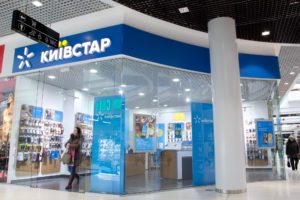
The Ministry of Infrastructure of Ukraine under the leadership of ex-minister Vladyslav Krykliy has failed to implement a program of state support for Ukrainian airlines that carried out evacuation flights during the coronavirus pandemic in 2020.
“We prepared the logic of compensation and relevant initiatives, submitted it to the Cabinet of Ministers. Then the Ministry of Finance refused with the classic explanation – there is no money. But they promised to return as soon as possible … But this is not even direct funding, but a loyalty program for airport and air navigation services … But even so we were not allowed to realize this,” Krykliy said in an interview with the Interfax-Ukraine agency.
He also noted that the issue of compensation to air carriers for 2020 is “not about reforms, but about justice.”
According to Krykliy, absolutely all countries in Europe help their air carriers, but this item was not included in the priorities of the Ukrainian government.
As reported, earlier the Ministry of Infrastructure planned to provide targeted assistance to state airports to create discount programs for airlines that participated in the evacuation of Ukrainian citizens during the first wave of the pandemic lockdown.

Minister of Culture and Information Policy of Ukraine Oleksandr Tkachenko says that the ministry is already preparing a proposal to the government on the regime of financial compensation for cultural sector.
“The Ministry of Culture is already preparing our proposal to the Cabinet of Ministers on the regime of financial compensation. We will appeal to the European experience, because the introduction of a lockdown there provided for financial compensation from the state to business entities (including self-employed ones) for a period of downtime,” Tkachenko wrote in the Telegram channel on Wednesday.
In this connection, the minister cited calculations on the impact of quarantine on culture, tourism and creative industries.
So, according to the minister, 2% of the country’s GDP, or more than UAH 83 billion, is the total loss of business in the cultural sector, creative industries and tourism from lost income since the beginning of March, taking into account the first lockdown.
In particular, in the field of tourism: a decline in the tourist flow by 75%; average loss of income for one weekend – UAH 1,045 million.
Hotels – drop in average occupancy from 50% to 20%; average loss of income for one weekend – UAH 119,7 million.
Cinemas – 39% loss of visitors; average loss of income for one weekend – UAH 17,13 million.
Culture and creative industries (excluding IT and film networks) – loss of 50% of income due to restrictions on holding events and entering institutions, loss of solvency; average loss of income for one weekend – UAH 324.16 million.
In addition, the minister said that a lockdown of tourism, culture and creative industries could lead to a loss of about 10% of GDP over the next five years.
According to him, the recovery of markets will take place slowly due to the migration of specialists to more protected industries, and the negative balance of the labor force in creative industries will lead to the loss of their export potential and the possibility of promoting Ukraine in the world through creative products and services.

The National Commission for Communications and Informatization Regulation (NCCR) has proposed to telecom operators within one month to file an application to the regulator about the early introduction of the new radio technology in the radio frequency (RF) band lower 1 GHz and settle the issue of concentration of a part of spectrum with two market players via quitting some RF by them on a voluntary basis. According to the regulator’s website, the applications on behalf of operators about the early introduction of the new technology are required because NCCR lacks the legislative authority to make regulatory decisions aimed at changing the current situation.
The commission recalled that, unlike the 1800 MHz band, suitable for the introduction of new radio technologies, the RF spectrum in the 900 MHz band is almost five times smaller, and it is simultaneously used by both general and special users; that this RF is licensed to operators for 3-11 years; that a significant fragmentation of the spectrum and the available concentration of the RF with one telecommunications operator also adversely affect the possibility of introducing new communication technologies in the specified band.
“It was also established that defragmentation of the spectrum would not provide an opportunity of introducing new radio technologies by all operators, given the limited RF they have in use,” the commission said.
The regulator also said that in 2018-2019, the commission, together with industry associations and government agencies, was working to find options for a voluntary frequency exchange, but no agreement was reached between telecommunications operators.
NCCR recommended RF users who, in accordance with the law, carry out operator activities in a certain radio frequency band below 1 GHz, within one month to apply to the commission with an application on the early introduction of new radio technology in this band.
At the same time, the commission recommended to Kyivstar and Intertelecom simultaneously with the said application to submit applications for reducing the relevant RF bands taking into account: the fundamentals of public regulation and the basic principles of using RF spectrum of Ukraine, as well as the number of subscribers of each operator involved by these operators’ resource, as well as the percentage of RF in the 900 MHz band used by EU telecommunications operators, and taking into account the problems of international coordination of RF.
At the same time, the commission considers it advisable to include the liabilities to ensure within 12 months from the date of issuance of a new license to comply with the indicators of the quality of mobile communication services using 3G/4G radio technologies in the territory of each settlement of Ukraine, and on regional, national and international highways of the region, provided for in the new license (except for territories where public authorities are temporarily not exercising their powers, and the territories in which the restrictions for the operation of radio electronic facilities are set) in the special conditions for using RF spectrum under new licenses.
In turn, the Kyivstar mobile operator said that it understands the importance of reducing the digital gap in Ukraine and is ready to consider a possible partial return of RF to the state.
“We have repeatedly offered options for the exchange of frequencies in the 900 MHz band, because this exchange will increase the available spectrum size. We are ready to consider the possibility of a partial return of frequencies to the state under certain conditions… The company acquired RF on legal grounds, at market value, through effective mergers and acquisitions, observing all legislative procedures. It is important for us to understand the regulator’s vision regarding compensation for Kyivstar, as well as the step-by-step reorganization algorithm for the 900 MHz band and their refarming,” President of Kyivstar Alexander Komarov told Interfax-Ukraine, adding that only in 2018, the operator paid more than UAH 1 billion for the rental of RF spectrum.
He also said that the necessary condition for the exchange of radio frequencies in the 900 MHz band is the subsequent introduction of the principle of technology neutrality on the Ukrainian telecom market, which will enable all telecom companies to develop any communication services in frequencies that have already been issued to operators.
Intertelecom has not yet commented on the statement of the commission.